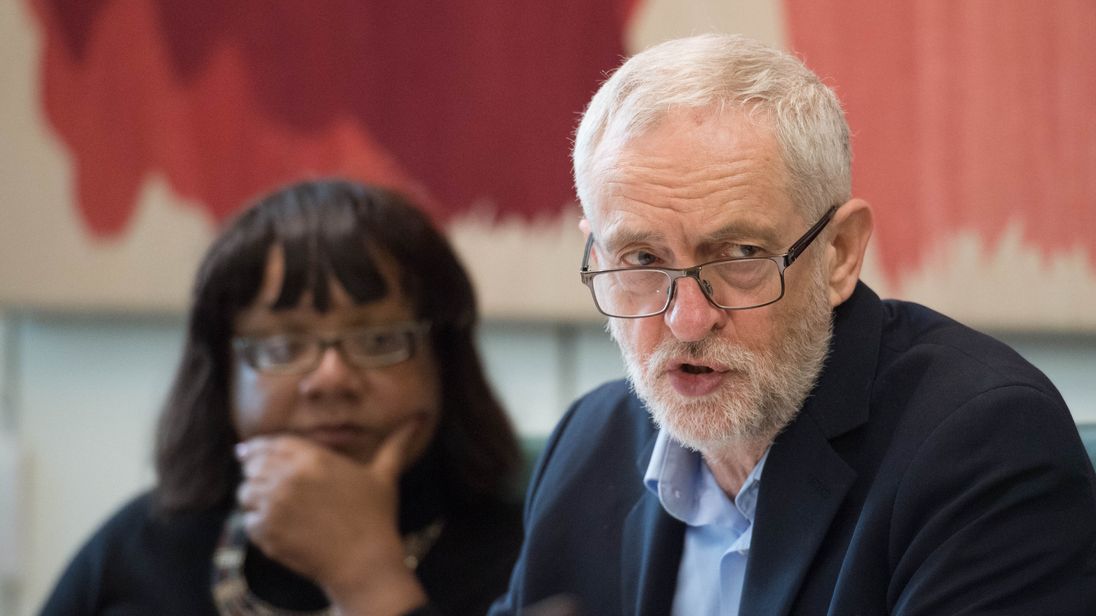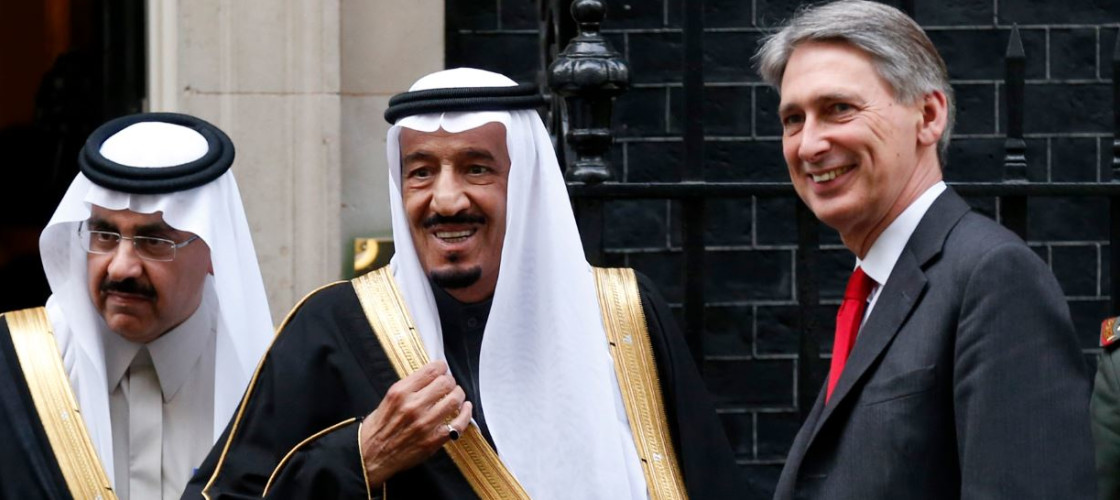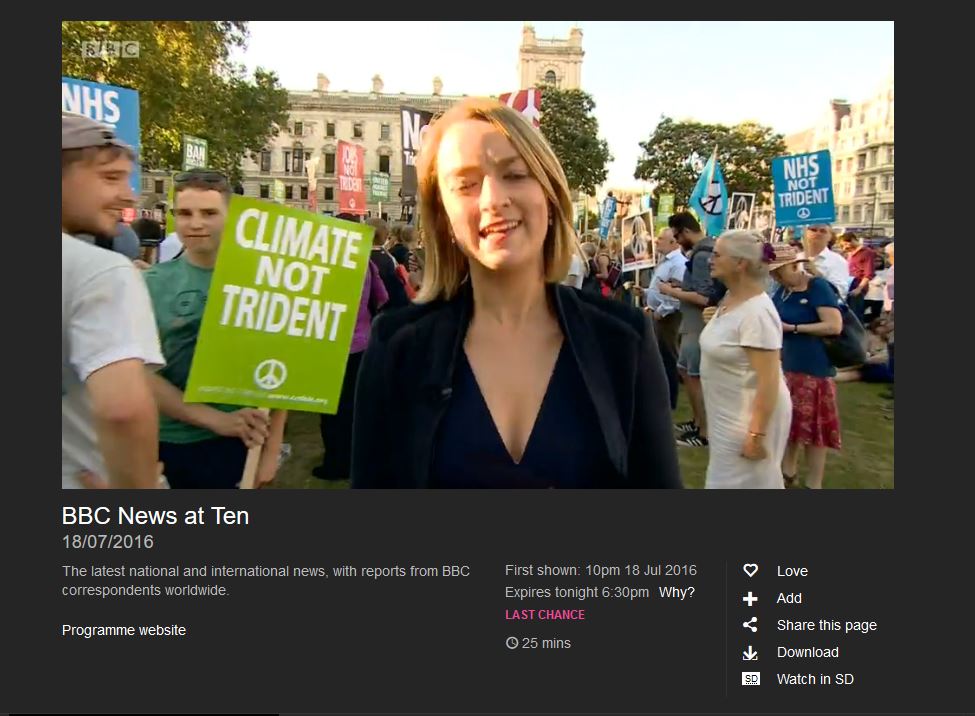By Daniel Margrain
In 1978, the Australian social scientist, Alex Carey, pointed out that the twentieth century has been characterized by three developments of great political importance: “the growth of democracy; the growth of corporate power; and the growth of corporate propaganda as a means of protecting corporate power against democracy.”
In order to defend their business interests against the forces of democracy, the corporations that now dominate much of the domestic and global economies recognize the need to manipulate the public through media propaganda by manufacturing their consent, largely achieved through coordinated mass campaigns that combine sophisticated public relations techniques.
This is the context of the political and media establishment’s vilification of Jeremy Corbyn’s leadership and their plot to oust him.
Media hate-fest
What Media Lens accurately described as a “panic-driven hysterical hate-fest right across the corporate media spectrum,” began during Corbyn’s campaign to become leader. This was manifested politically after a hardcore group of right-wing MPs all refused to serve under him.
After it became clear that Corbyn had secured ‘the largest mandate ever won by a party leader’, the attacks against him became more intense culminating in what colour poppy Corbyn would wear, his refusal to sing the national anthem or whether he would wear a tie or do up his top button. All of this was granted national news headlines and incessant coverage.
Not to be outdone, in October 2015, the BBCs political editor Laura Kuenssberg featured in an almost comically biased, at times openly scornful, attack on Corbyn’s reasonable stance on nuclear weapons. The BBC then broadcast five senior Blairite Labour figures all opposing Corbyn without any opportunity for an alternative viewpoint.
A letter published in the Guardian signed by various academics and media activists, including Greg Philo of the Glasgow Media Group, Noam Chomsky and Edward Herman, noted:
“The leadership of Jeremy Corbyn has been subject to the most savage campaign of falsehood and misrepresentation in some of our most popular media outlets. He has, at different times, been derided, ignored, vilified and condemned.”
Other manufactured anti-Corbyn stories and attempts to undermine his leadership have included fake antisemitism claims and the McCarthyite purging of Corbyn supporters.
Increase in vote share & party membership
When in September 2016, Corbyn defeated Owen Smith’s leadership challenge, the former increased his share of the vote from 59.5% to 61.8% compared with the result of the 2015 leadership election. Membership of the party is currently higher than its last peak of 405,000 members last seen under Tony Blair’s leadership.
Under Blair, the party haemorrhaged 4.9 million votes between 1997 and 2010. The man who took the country to war in Iraq under a false prospectus, and who lobbies on behalf of some of the world’s most brutal and corrupt dictators, claimed in a moment of Orwellian doublespeak that Corbyn is a disaster for the party.
Blair was not alone. Prior to the last General Election, right-wingers within the party had continued to assert that Corbyn was an electoral liability for Labour. This was despite the fact that pre-coup, Labour led the Tories in three polls in a row over 41 days.
Myth-making
It was clear that the ‘left are unelectable narrative’ was intended to play into the hands of Corbyn’s opponents. It is a narrative that is based on a myth. The notion, for example, that you have to be right-wing to win elections is belied by the fact that the SNP under Nicola Sturgeon won the people of Scotland over on a left-wing ticket. Moreover, the British public’s ‘enthusiasm’ for Blair in 1997 was not based on policies that were subsequently known as Blairite, but, rather, on a left-wing image of the kind outlined in the 1997 Labour Manifesto.
Similarly, as the June 2017 General Election neared, the public began to frame their views on Corbyn, less on what the media wanted them to believe through their propagandizing of him, and more on what they saw and heard in public speeches and debates.
They liked what they heard. The bread and butter issues resonated across the board, but particularly with the young who saw in Corbyn somebody who at last was prepared to put issues like tuition fees, education, inequality, social justice and affordable housing at the top of the agenda.
The media’s depiction of Corbyn as a bumbling idiot and terrorist sympathizer didn’t square with the reality. Thus, the closer the election got, the narrower the polls became. When Theresa May called the election last April, the Tories lead over Labour was 24 points. A week before the election, the lead had been cut to just three.
Compassion, justice & humanity
Having galvanized the young and encapsulated the wider public mood with an inspired insurgency campaign, it was clear in the early hours on 9 June 2017, that Corbyn against all the odds, had prevented a Tory majority. The electorate in huge numbers had been persuaded by the Labour leaders message of compassion, justice and humanity.
Given the level of media vilification, hostility and bias against Corbyn from the moment he became Labour leader, the election result was nothing less than astonishing. Corbyn ‘increased Labour’s share of the vote by more than any other of the party’s election leaders since 1945, with the biggest swing witnessed since the Second World War. He won a larger share of the vote than Blair in 2005.
In his constituency of Islington North, Corbyn inherited a majority of 4,456, which increased to 21,194. He added a further 10,430 at the General election. He’s one of the few Labour MPs whose vote increased between 2005 and 2010, when he added 5,685 to his majority.
The corporate media commentariat – most of whom predicted a Tory landslide – were stunned at the result. When a tweeter suggested that Corbyn’s result was “brilliant”, New Statesman editor Jason Cowley replied: “Yes, I agree.” Just three days earlier, Cowley had written under the ominous title:
“The Labour reckoning – Corbyn has fought a spirited campaign but is he leading the party to worst defeat since 1935?”
In March 2017, Cowley opined:
“The stench of decay and failure coming from the Labour Party is now overwhelming – Speak to any Conservative MP and they will say that there is no opposition. Period.”
Cowley’s views are indicative of how the elite class in general have been slow in responding to the shifting political landscape. The unrepresentative nature of TV political punditry continues pretty much as it did before the election.
But it isn’t just the commentariate and TV producers within the elite media bubble who are out of touch and aloof. The Labour party establishment who endorse the elite narrative and who were filmed predicting Corbyn’s demise and felt he was unsuitable to lead the party into the election, have without any shame or embarrassment, continued with ‘service as normal’.
Czech spy & Russia apologist
Almost a year on since the election, the elites have continued with their sustained anti-Corbyn fake news stories. One of the latest and most prominent of these was the claim Corbyn met with Czech communist spies to sell them secrets. Corbyn’s team were left with no option other than to threaten one of his accusers with legal action. With a potential libel suit hanging over him, MP Ben Bradshaw, was forced publicly to apologize unreservedly for the untrue and false accusations he made against the Labour leader.
Then in March 2018, Corbyn came under yet more attacks from his own MPs over the Salisbury Skripal poisoning case. Corbyn’s reasonable stance that prompted the attacks on him, was his request to PM Theresa May that she present to parliament evidence to support her assertion that Russia was responsible for the poisonings.
He was also criticised for reminding May that under the terms of the Chemical Weapons Convention (CWC) to which the UK is a signatory, the UK government was obliged to provide Russia with a sample of the nerve agent used, along with all related evidence uncovered in the course of the investigation.
It soon transpired that May provided no evidence regarding Russia’s alleged culpability. When Russia formally requested that the UK submit a sample of its evidence to the Organisation for the Prevention of Chemical Weapons (OPCW), May refused the request. It was subsequently revealed that on March 14, the UK government blocked a Russia-drafted UN Security Council statement calling for an urgent inquiry into the incident.
Compared with the histrionics of May and the establishment mass media, Corbyn had been far more circumspect and rational in his approach to the issue. There is a very good reason for this. Barely mentioned in the press was the fact that seven months ago, Russia had destroyed all of its stockpiles of chemical weapons.
The Director-General of the OPCW, Ambassador Ahmet Üzümcü, stated:
“The completion of the verified destruction of Russia’s chemical weapons programme is a major milestone in the achievement of the goals of the Chemical Weapons Convention. I congratulate Russia and I commend all of their experts who were involved for their professionalism and dedication.”
Former UK diplomat Craig Murray points out with reference to the contents published in a prestigious scientific journal by Dr Robin Black, Head of the facilities Detection Laboratory, that the evidence for the existence of Novichoks was scant and their composition unknown. As such “the UK government has absolutely no ‘fingerprint’ information such as impurities that can safely attribute this substance to Russia.”
But even if there was evidence of a compound corresponding to a “Novichok”, it doesn’t necessarily follow that Russia was responsible for manufacturing the compound, since no Russian sample can be compared to it. In other words, May’s assertion that the Russian state was responsible for the attacks on Mr. Skripal and his daughter on the basis that ‘Novichoks’ can only be made in certain military installations, is demonstrably false.
The antisemitism accusations resurface
Once again, Corbyn defied his critics. But it didn’t take long before the attacks on him would resurface. The Labour Friends of Israel lobby inside the party which, in April 2016, had manufactured a fake antisemitism crisis, took their opportunity two years later to strike again. The catalyst this time was an anti-capitalist wall mural by artist, Kalen Ockerman, removed from East London in 2012.
The basis for Corbyn’s admiration for the work – which actually surfaced in 2015 – was the anti-capitalist themes depicted in the mural (Corbyn had previously expressed praise for a similarly themed mural by left-wing Mexican artist Diego Rivera). What was a non-issue at that time, had three years later become a major media scandal. Yet not a single commentator in the corporate mainstream had thought to ask the question why.
Furthermore, the Jewish Chronicle responsible for the ‘scoop’ back in 2015, and which asserted at the time the mural might have “antisemitic undertones”, not only attributed the claim to Corbyn’s critics, but three years later had changed their tune. They were now claiming that the mural was explicitly antisemitic and attributed the support of the mural’s supposed antisemitic themes to Corbyn not his critics.
In addition, back in 2015, the paper described the scene depicted in the mural as “a group of businessmen and bankers sitting around a Monopoly-style board and counting money” not as the media is now doing, a “cabal of Jewish bankers”. Among the right-wingers who joined in the chorus of anti-Corbyn smears was former leader, Ed Miliband who accused Corbyn of not doing enough to counter the ‘problem’ of antisemitism in the party despite claims to the contrary outlined by human rights lawyer Shami Chakrabarti in her report.
Revealingly, only 18 MPs voted against Theresa May’s 2014 Immigration Act, which enshrined dogwhistle racism and the hostile environment policy. None of the 18 mentioned included any anti-Corbyn right-wing Labour MPs who supposedly care so much about antisemitism and racism within the party.
Nevertheless, in their attempts to make the fake antisemitic claims stick, some of the said Labour MPs continued on April 17 to denounce Corbyn’s handling of alleged antisemitism with rousing speeches in parliament. Corbyn critic and chief Zionist cheerleader, John Mann, recounted a story in which his wife was sent a dead bird in the post by an ‘antisemitic’ Corbyn supporter affiliated to Momentum. But it was subsequently revealed that the incident in question happened in 2012, three years before Momentum was formed and three years prior to Corbyn’s election as party leader.
Another MP and Corbyn critic who spoke during the ‘debate’ was former Israel lobby spin doctor, Ruth Smeeth who, after entering the UK parliament in 2015, continued to be funded by two leading figures from her former employer, BICOM – the Britain Israel Communications and Research Centre. The latest official register of financial interests for members of Parliament shows that Smeeth continues to be funded by the Israel lobby.
Vote with those you are officially opposing
The parliamentary ‘debate’ described, in addition to the recent accusations of antisemitism accompanying it, are aimed to coincide with the forthcoming local elections which Corbyn’s critics inside the party desperately want to be calamitous for the Labour leader.
Former UK ambassador, Craig Murray, recalled reporting on an Uzbek Presidential election where the ‘opposition’ candidate advised voters to vote for President Karimov. “When you have senior Labour MPs including John Woodcock, Jess Phillips, John Mann, Luciana Berger, Mike Gapes, Wes Streeting and Ruth Smeeth carrying on a barrage of attacks on their own leader during a campaign, and openly supporting Government positions, British democracy has become completely dysfunctional”, he said.
The reason why the attacks against Corbyn have reached fever pitch is precisely because his critics within the establishment know he is highly electable and therefore represents a threat to their privileged positions both inside and outside of the party. This is probably no better illustrated than the positive reaction by the CBI to Corbyn’s February 26, 2018 Brexit speech.
In the aftermath of the speech, establishment writers for centre-right publications like the Spectator and pro-hard Brexit right-wing politicians like Jacob Rees-Mogg who, financially, stand to lose the most should Corbyn become the next Prime Minister, are the same people who appear to have undergone somewhat of a Damascene conversion to the working class cause.
Power of social media
Corbyn’s success is indicative of the power of social media to break the ability of the corporate mainstream to manufacture the electorates consent. All those within the political and media establishment motivated primarily by elite interests associated with money and power will disappear once the money dries up. Social media is leading the way in helping to dispel the myths and falsehoods for which the elites depend in order to sustain their privileged positions in society. Corbyn’s rise is indicative of how the consolidated power of the old established corporate- media hierarchies and their fake narratives are breaking down.
This is bad for the elites but good for democracy. Given that the smears promoted by the press have had virtually no effect on public opinion, and as Corbyn edges closer to the reigns of power, for how much longer will the corporate elite class be able to sustain what has arguably been the most prolonged and vitriolic reportage ever witnessed against any British political figure in history?
Please make a small donation
If you’ve enjoyed reading this or another posting, please consider making a donation, no matter how small. I don’t make any money from my work, and I’m not funded. You can help continue my research and write independently.… Thanks!








 David Davies MP
David Davies MP 




/about/82126956-56a792c05f9b58b7d0ebcf9a.jpg)

